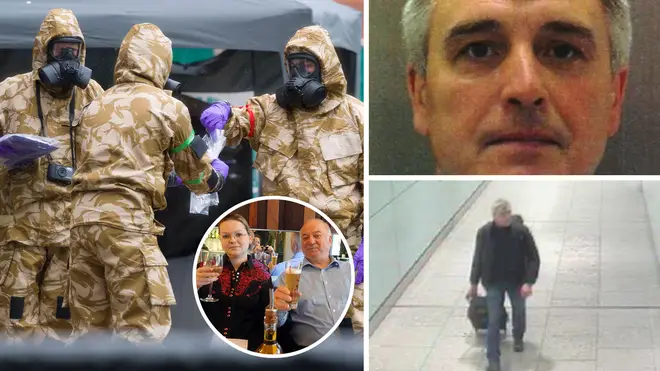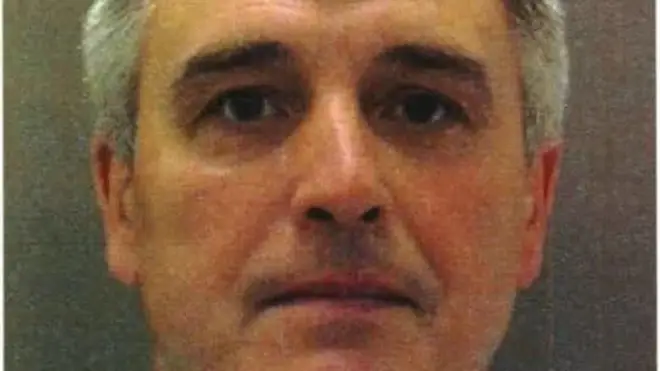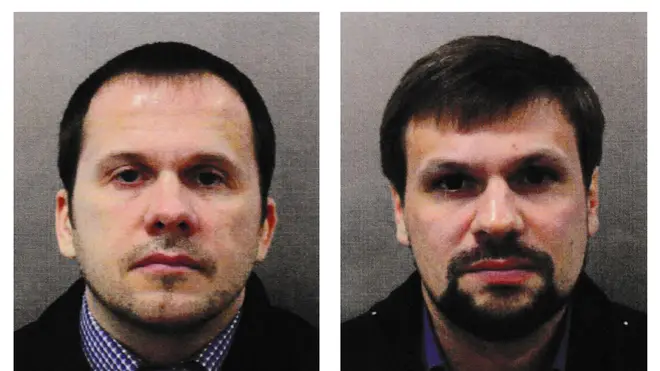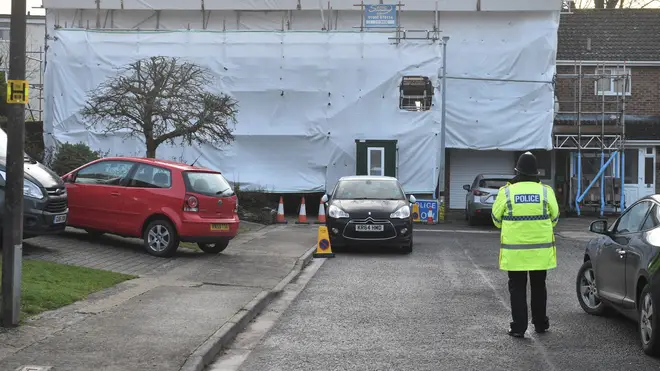
Ian Payne 4am - 7am
21 September 2021, 11:00 | Updated: 21 September 2021, 18:23

A third Russian national has been named and charged with the Novichok poisoning of Sergei and Yulia Skripal in Salisbury in 2018.
Counter terrorism police have also for the first time linked all three wanted men directly to Russian military intelligence.
In the months after the attack, police announced that they had charged two men: Alexander Petrov and Ruslan Boshirov, with conspiracy to murder the Skripals and DS Nick Bailey of Wiltshire Police, who fell ill after investigating the crime scene. Now they have added a third suspect, a man using the alias Sergei Fedotov, who is charged with exactly the same crimes.
Police have also gone further in revealing the true identities of all three men, rather than their aliases. The information had already been made public by the investigative website Bellingcat, but today police have confirmed the three men as Alexander Mishkin, Anatoliy Chepiga and Denis Sergeev.
All three, police believe, are linked to Russian military intelligence outfit the GRU. And there is evidence that the men have previously worked together on operations outside of Russia.
Earlier this year, the Czech Republic linked "Petrov" and "Boshirov" to an explosion at an arms depot in 2014 that killed two people.
Read more: Russia accused of rigging gas prices to harm UK Covid recovery
Read more: Western news websites 'infiltrated' by pro-Russian trolls - researchers
Speaking to the House of Commons on after the announcement, Priti Patel said the UK and Russia had "profound differences" and that the country had "challenged the fundamental basis of international order", both with the Novichok attack and the Litvinenko assassination, which the European Court of Human Rights concluded Russia was responsible for on Tuesday.
Of the Novichok investigation, Ms Patel thanked detectives and vowed to continue with work to get to the bottom of what happened.
"I pay tribute to the ongoing work to bring the perpetrators of this outrageous attack to justice."
She added: "We will not let this go."


In 2019, Bellingcat linked one of the men to the poisoning of a Bulgarian arms trader and his son in 2015.
At a briefing for journalists, police would only confirm they were in contact with authorities in the Czech Republic and Bulgaria, but there was evidence the three men had worked together on operations elsewhere as well.
The third man identified today as Denis Sergeev is said to have arrived into London Heathrow from Moscow on 2 March 2018, just a few hours before his co-conspirators arrived into Gatwick.
Police believe he stayed at a central London hotel, and that he met with Mishkin and Chepiga on "a number of occasions", but that he remained in London whilst the other two travelled to Salisbury.
Read more: Police officer poisoned by Novichok 'still waiting for part of his pension'
Read more: 'Don't spoil Russia-UK relations', Putin warns after MI6 chief's criticism

Tests have been carried out on his London hotel room, but no traces of Novichok were found, unlike at the City Stay Hotel in East London where Mishkin and Chepiga stayed, and where traces of the nerve agent were discovered.
Police say Sergeev then departed the UK from London Heathrow on a flight to Moscow at 1.45pm on 4 March. Mishkin and Chepiga, returning from Salisbury that same day, took a flight from Heathrow at 10.30pm.
There is evidence that all three men had previously travelled to the UK, but investigators said it was not currently possible to connect the trips to one another, nor to the Salisbury incident.
Senior National Coordinator for Counter Terrorism Policing, DAC Dean Haydon, said: "Being members of the GRU they will be highly trained individuals. Looking at their activities in the UK and the charges against them, all three are dangerous individuals.
"They have tried to murder people here in the UK and have brought an extremely dangerous weapon into the UK.
"The amount of Novichok was quite significant and could have killed hundreds if not thousands of people."
The three men have been charged with conspiracy to murder, attempted murder, grievous bodily harm and the possession and use of a chemical weapon.
Warrants have been granted for their arrest, and in the case of Sergeev, police are applying to Interpol for a red notice. These have already been issued for Mishkin and Chepiga.
The chances of arrest appear slim however, as police believe the three men to be in Russia, with whom the UK does not have an extradition treaty. DAC Haydon said there had been "very little cooperation with the Russian state".
Asked whether there may still be others involved in the plot, he added: "I'm not going to rule out there may be others, but evidentially at this moment I can only prove three."